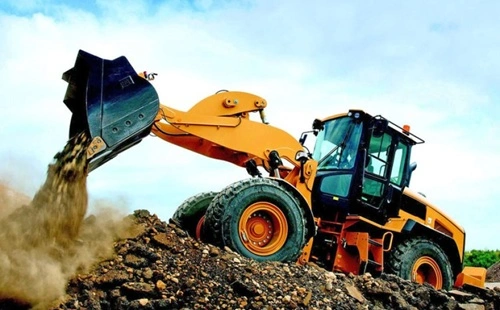Builders rely on heavy equipment to complete many tasks when completing a project. They often purchase equipment they use regularly. When they have specific machines they don’t use daily but require at times, turning to a rental provider to secure these machines is a wise move. With the help of this equipment, the builder can meet project goals. How do the rentals benefit the business?
Lower Upfront Costs
Many builders turn to Columbus Equipment to gain access to the machinery they need without paying high upfront costs. Renting the equipment allows the project to move forward without a significant capital investment. The builder won’t need to worry about depreciation or taking on more debt. They can continue with revenue-generating projects while having access to the necessary machines.

No Storage Expenses
Storage challenges are common for builders. They must have a place to store their heavy equipment when it is not in use. These machines require a significant amount of space. If the company owns several machines, storage expenses can quickly become overwhelming. When the builder rents machinery, they no longer need to worry about storing it. Renting saves them time and money.
Short-Term Needs
Certain pieces of equipment aren’t needed regularly. Builders don’t want to invest money in equipment that will frequently sit idle. Renting allows them access to machines they use infrequently without incurring a significant expense. They can utilize this machinery for a new type of project or diversify the types of projects they undertake.
Technology
Technological advances are common today. Builders who purchase heavy machines may find their equipment is outdated after a year or two. This concern is eliminated when they rent instead of buying. Rental providers invest in the latest equipment to ensure their customers’ satisfaction. By renting, builders always have access to the newest technology.
Reduced Maintenance
Maintaining heavy equipment takes time and money. When a builder rents rather than purchases machinery, they leave maintenance tasks to the rental provider. The provider is responsible for ensuring the equipment is in top condition and performing optimally. The builder never needs to worry about upkeep. Builders who purchase equipment find that machine breakdowns and failures can be costly in terms of downtime and delays. When they rent a machine that stops working, they contact the provider for repairs or a replacement.
Logistics
Builders must set aside time to transport heavy equipment to and from job sites. They also have to pay for all related transportation costs if they own the machinery. When they rent heavy equipment, these costs are built into the rental fee. Builders know exactly how much they will pay, and they don’t need to worry about oversized or overweight load permits. The rental company handles those.
Trial Runs
Builders often rent equipment they plan to purchase. They want to ensure they are getting the right machine for their needs, and renting the equipment allows them to take it for a test run. They can ensure it meets their needs. If it doesn’t, they may rent another machine and continue this process until the right equipment is found.
Builders find that other benefits come with renting equipment rather than purchasing it. They minimize their fleet without compromising access to the necessary equipment. Furthermore, they never need to worry about selling outdated equipment. Their time can be spent on activities that grow their businesses. Learn more about equipment rentals today to determine if they are the right fit for you.

Our dedicated team gathers information from all the reliable sources to make the law accessible and understandable for everyone. We provide the latest legal news stories from across the country, delivered straight to you.
